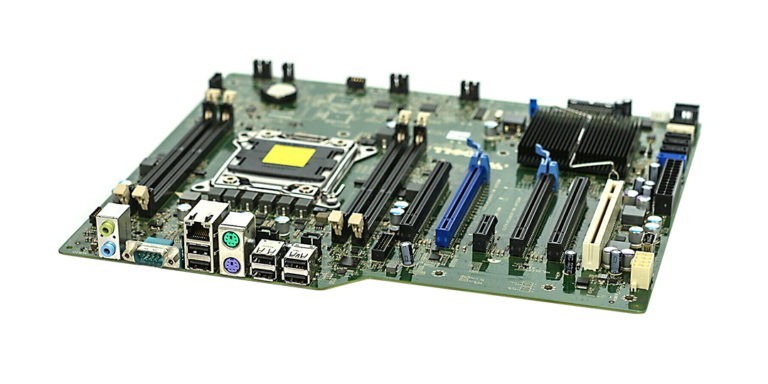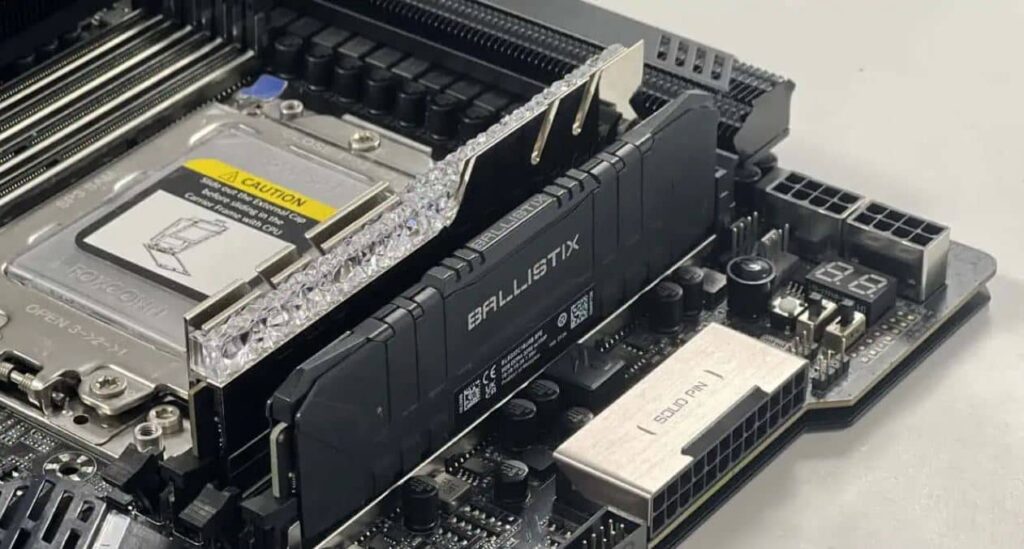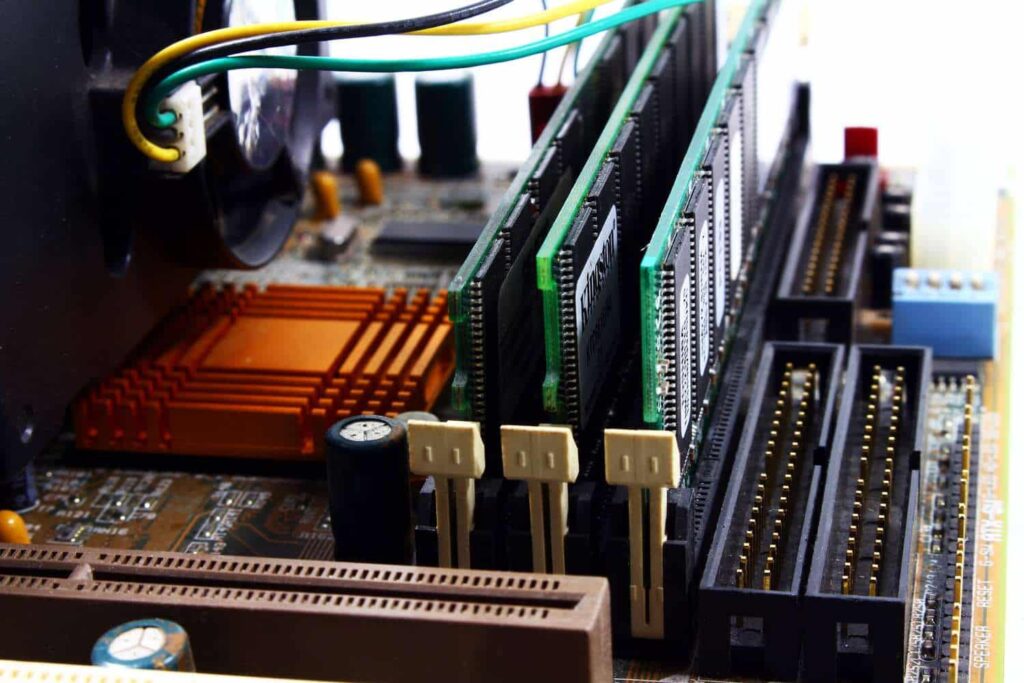When I upgraded my PC, I needed to check if my new RAM was compatible with the motherboard. I found that reviewing the motherboard’s specs and RAM type was key. This quick check saved me from potential headaches down the line!
To check if RAM is compatible with your motherboard, look at the motherboard’s specifications for supported RAM types and speeds. Also, ensure the RAM fits in the available slots. This will help prevent problems.
In this article, we will discuss “How To Tell If Ram Is Compatible With Motherboard”.
Table of Contents
What is a motherboard?

A motherboard is a main part of a computer. It connects all the other parts, like the CPU, RAM, and storage. It allows these components to communicate and work together, making it essential for the computer to function properly.
Read More: Asrock Motherboard Wifi Not Working – Ultimate Guide – 2024!
Understanding Motherboard and RAM Compatibility:
Compatibility between your motherboard and RAM is important for your PC. Check the motherboard’s manual for supported RAM types and speeds. Ensure the RAM fits in the slots and matches the motherboard’s specifications to avoid problems when building or upgrading your system.
How can I check if my RAM is compatible with my motherboard?
To check if your RAM is compatible with your motherboard, look at the motherboard’s manual for supported RAM types and speeds. Also, check the RAM slots on your motherboard to ensure they match the RAM you want to use.
How does the RAM type affect motherboard compatibility?
DDR (Double Data Rate):
DDR stands for Double Data Rate. It is a type of memory used in computers that allows data to be sent twice per clock cycle, making it faster and improving overall system performance. It’s common in modern devices.
SDRAM (Synchronous Dynamic Random Access Memory):
SDRAM stands for Synchronous Dynamic Random Access Memory. It is a type of memory used in computers and devices. SDRAM works quickly with the CPU, making it ideal for running programs and handling tasks efficiently.
DDR2, DDR3, DDR4, and DDR5:
DDR2, DDR3, DDR4, and DDR5 are types of RAM used in computers. Each type has different speeds and performance. When upgrading, it’s important to choose RAM that matches your motherboard to ensure everything works well together.
ECC (Error-Correcting Code) vs. Non-ECC:
ECC (Error-Correcting Code) RAM helps fix memory errors, making it reliable for servers and important tasks. Non-ECC RAM is faster and cheaper but does not correct errors. Choose ECC for stability or Non-ECC for regular use.
How do I know if my motherboard is compatible with my RAM?
To check if your motherboard is compatible with your RAM, look for the motherboard model online. Find the RAM specifications it supports, such as type (e.g., DDR4), speed, and maximum capacity. This will help ensure proper compatibility.
Will any DDR4 RAM work with any motherboard?
Not all DDR4 RAM will work with any motherboard. Each motherboard has specific RAM requirements. Check the motherboard’s manual for the right RAM speed and size to ensure compatibility before buying new memory.
Can I mix different RAM brands on my motherboard?

Yes, you can mix different RAM brands on your motherboard. However, it’s best to use the same speed and size for the best performance. Mixing may work, but it can also cause issues or lower performance. Always check compatibility.
Read More: Do Motherboards Come With Bluetooth – What You Need to Know!
What makes RAM not compatible with motherboard?
RAM may not be compatible with a motherboard due to different types, speeds, or sizes. If the RAM’s specifications do not match what the motherboard supports, it can lead to issues, preventing the system from working properly.
Can I use different RAM in my motherboard?
Yes, you can use different RAM in your motherboard, but make sure they have the same type and speed. Mixing RAM brands is possible, but it may cause issues, so check the motherboard manual for compatibility details.
How to Check RAM and Motherboard Compatibility?
To check RAM and motherboard compatibility, first, look at the motherboard’s manual or website for supported RAM types and speeds. Then, match the RAM specifications with what your motherboard can handle to ensure they work together properly.
What role do RAM speed and timings play in compatibility?
RAM speed and timings affect how well RAM works with a motherboard. Higher speed means faster data transfer, while lower timings can improve performance. It’s important to match these specifications with your motherboard for optimal system performance.
How do I find out what RAM is compatible with my PC?
To find out what RAM is compatible with your PC, check your motherboard’s manual or specifications online. Look for the RAM type, speed, and maximum capacity supported. This information helps you choose the right RAM for your computer.
How to select the Correct RAM for a Motherboard?
To select the correct RAM for a motherboard, check the motherboard’s specifications for supported RAM types and speeds. Also, consider the amount of RAM needed for your tasks, ensuring it matches your system’s requirements for optimal performance.
How to Check RAM and Motherboard Compatibility?
To check RAM and motherboard compatibility, look at your motherboard’s manual for supported RAM types and speeds. Also, check the number of RAM slots available. Make sure the new RAM matches these details to ensure it works properly.
CORSAIR RAM compatibility checker?
You can easily check if CORSAIR RAM works with your motherboard by using their online compatibility tool. Just enter your motherboard details, and it will show if the RAM is suitable, helping you avoid any issues.
How to tell if ram is compatible with motherboard laptop?
To check if RAM works with your laptop’s motherboard, see the specs for supported memory type, speed, and size. You can find this info in your laptop’s manual or on the manufacturer’s website to ensure compatibility.
How to tell if ram is compatible with motherboard gaming?
To check if RAM is compatible with your motherboard, look at the motherboard’s manual or website for supported RAM types and speeds. Make sure the RAM’s specs match what the motherboard can handle to avoid any problems.
How do I find out the maximum RAM capacity supported by my motherboard?
To find the maximum RAM your motherboard can support, check the user manual or visit the manufacturer’s website. Look for details about memory capacity and the number of RAM slots available for your specific motherboard model.
Are there specific slots I should use for RAM installation on the motherboard?

Yes, some motherboards have preferred slots for installing RAM, usually alternating slots like 1 and 3 or 2 and 4 for two sticks. Check your motherboard manual for the recommended slots to ensure the best performance.
Read More: Motherboard Ram Slot Takes 4gb Can I Install A 8gb – The Ultimate Guide 2024!
FAQs:
1. How can I find the right RAM type for my motherboard?
Check the motherboard manual or manufacturer’s website for supported RAM types, such as DDR4 or DDR5. Matching the specified type ensures compatibility.
2. Can mixing RAM brands cause compatibility issues?
Mixing different brands can sometimes cause problems due to variations in speed, timings, and voltage. It’s best to use identical RAM modules for stability.
3. What happens if I use unsupported RAM?
Using unsupported RAM may prevent the computer from booting or cause system instability. It’s important to use RAM that meets the motherboard’s specifications.(How To Tell If Ram Is Compatible With Motherboard)
4. How can I know the maximum RAM my motherboard supports?
The motherboard manual or manufacturer’s website will list the maximum supported RAM capacity. This ensures you don’t exceed the motherboard’s limits.(How To Tell If Ram Is Compatible With Motherboard)
5. Are there specific slots for installing RAM on the motherboard?
Yes, RAM slots are usually color-coded or labeled. Installing RAM in the correct slots can enable dual-channel mode, improving system performance.(How To Tell If Ram Is Compatible With Motherboard)
6. What should I do if my motherboard doesn’t detect the RAM?
Try reseating the RAM modules, checking for BIOS updates, or ensuring the RAM type is supported by the motherboard. These steps can help resolve detection issues.(How To Tell If Ram Is Compatible With Motherboard)
Conclusion:
Checking RAM compatibility with your motherboard is essential for optimal performance. Refer to the motherboard’s manual to find the supported RAM type and maximum capacity. Matching RAM modules reduces compatibility issues, and troubleshooting steps like reseating or updating the BIOS can fix detection problems
